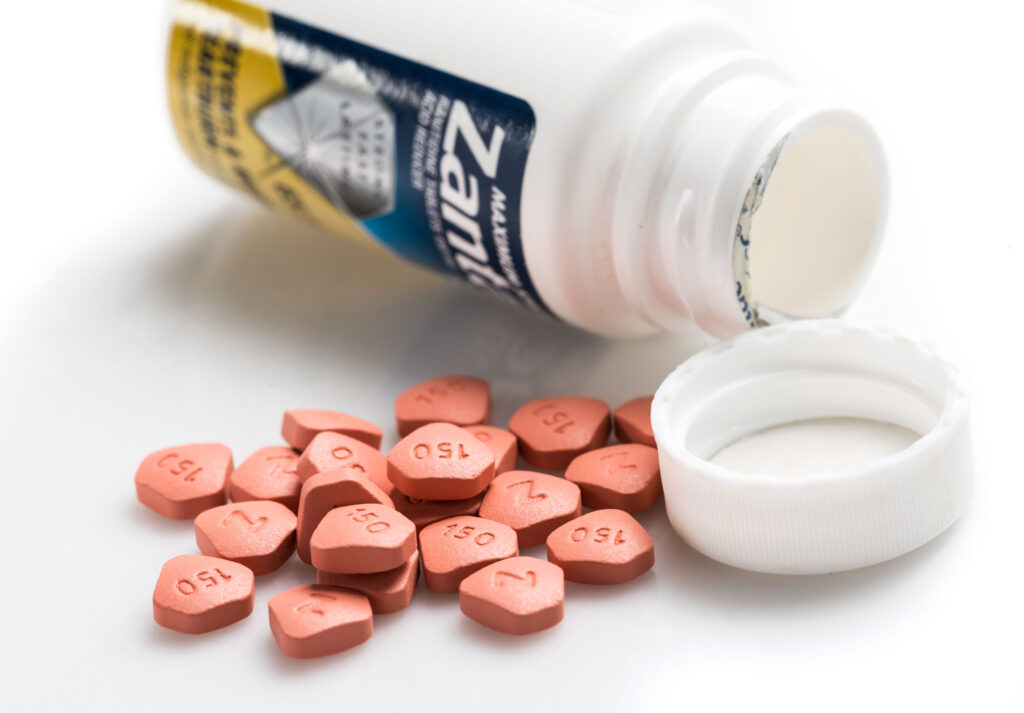In the latest news regarding a potential link between cancer and the heartburn drug Zantac, Pfizer has agreed to settle thousands of Zantac cancer suits.
In early May 2024, Pfizer agreed to settle more than 10,000 claims from users of Zantac, ultimately covering cases in several states across the United States, according to Reuters. The company did not immediately respond to a request for comment from the media outlet, and the financial details of the settlement were not made available.
Thousands of Claims Settled in Zantac Cancer Suits

According to WebMD, Zantac is used “to prevent and treat heartburn and other symptoms caused by too much acid in the stomach (acid indigestion).” Some of the medical issues it was meant to treat or relieve include acid indigestion, GERD, and gastric ulcers. Millions of people have regularly used the drug – many of them before concerns about its possible cancer risk came to light.
Sanofi, which acquired the over-the-counter prescription medication in 2017, recalled it in 2019 “after an independent lab released tests showing the likely carcinogen NDMA in the drug and its generics,” Bloomberg News revealed.
After the U.S. Food and Drug Administration affirmed those findings in 2020, drugmakers were ordered to take all versions of the medicine off the market. Now, the drug is made without ranitidine and has returned to the shelves with famotidine as the active ingredient instead.
But lawsuits related to the original formula of Zantac continue. Indeed, Bloomberg News reported as recently as last month that Sanofi agreed to pay more than $100 million to resolve around 4,000 Zantac cases.
“Pfizer has explored and will continue to explore opportunistic settlements of certain cases if appropriate, and has settled certain cases,” the biopharmaceutical company said in an emailed statement to the outlet.
“The company has not sold a Zantac product in more than 15 years and did so only for a limited period of time.”
Alleged Zantac Cancer Link
Previously, the FDA found that N-nitrosodimethylamine (NDMA) levels in some ranitidine products increased with time and temperature. While the agency noted it did not expect nitrosamines to pose harm when ingested at low levels, “Nitrosamine impurities may increase the risk of cancer if people are exposed to them at above acceptable levels and over long periods of time.”
In one Zantac cancer suit trial, the legal team for an 89-year-old individual told a jury in Chicago that pharmaceutical companies GSK and Boehringer Ingelheim were aware the product could cause cancer if it wasn’t handled properly but didn’t adequately warn the public of the risk. GSK developed the active ingredient in Zantac and then sold the brand to other companies, while Boehringer Ingelheim sold the drug from 2006 until 2017, Reuters noted.
GSK’s attorney Tarek Ismail told the jury in that case that there is “no objective evidence linking Ms. Valadez’s cancer to Zantac…No genetic test, lab report, imaging study… nothing whatsoever.”
But thousands of related cases have been settled, and thousands more remain pending in the U.S. The issue has clearly not been entirely resolved, and attorneys continue to pursue Zantac cancer suits.
If you or a loved one regularly took Zantac when it contained ranitidine, you may be entitled to compensation. Please give our firm a call today to speak with a member of the team at Phillips Law Group to see if you have a case following a free, no-obligation consultation.

